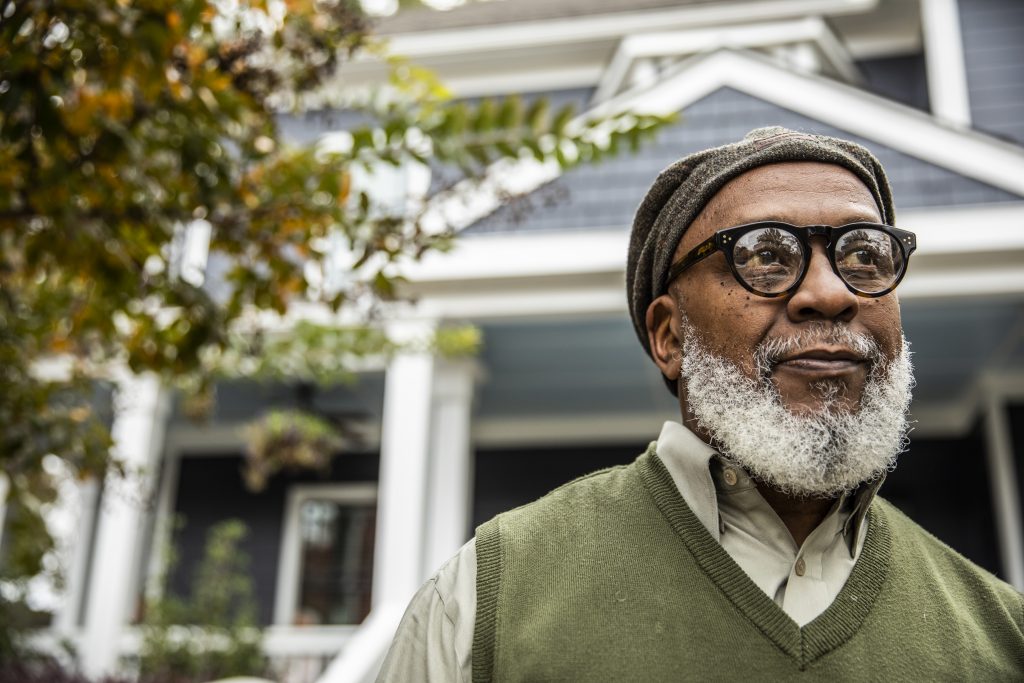
In 1968, Congress passed the Fair Housing Act, which outlaws housing discrimination based on race, religion and national origin. Five decades later, structural housing inequities persist:
- 44% of Black households own their home today. That’s only 2% higher than the homeownership rate in 1970, according to U.S. Census data.
- Black applicants are denied a mortgage at a rate 84% higher than that of white applicants.
- The typical Black household currently has less than a quarter (23.3%) of the wealth of a typical white household, down from more than a third (34.6%) before the Great Recession. Almost half of this gap can be attributed to housing disparities.
- As of October 2021, Black home values were still worth 16.7% less than homes overall . Housing disparities account for 38.4% (about $1.18 trillion) of the overall $3 trillion median Black-white wealth gap.
- In the 50 largest U.S. metros, areas in which single-family, detached homes represent at least 90% of the housing stock are, on average, whiter and more segregated than areas with a more diverse supply of housing.
Zillow is on a mission to create more equitable housing outcomes for all by bringing transparency to the real estate market and shining a light on the progress that government and nonprofits are making to address these disparities. While a great deal of work remains to be done to close the housing gap, here are some bright spots from 2021:
- In July, HUD reversed the Trump administration’s rollback of the Affirmatively Furthering Fair Housing provision, a policy framework that helps states, cities and public housing authorities take meaningful steps to reduce barriers to racial integration. The National Fair Housing Alliance called the restoration a “first step toward … putting our country back on track to ending housing discrimination, dismantling housing segregation, and tackling systemic racism, thereby expanding access to opportunity as the Fair Housing Act intended.”
- In August, the Federal Housing Finance Agency (FHFA) announced that on-time rental payments would be factored into risk assessments done for government-backed mortgage loans. Rent is the single largest expense for many households. Acting FHFA Director Sandra L. Thompson says, “With this update, Fannie Mae is taking another step toward understanding how rental payments can more broadly be included in a credit assessment, providing an additional opportunity for renters to achieve the dream of sustainable homeownership.”
- In October, FHFA announced that Fannie Mae and Freddie Mac will be able to utilize desktop appraisals for new loans, starting in early 2022. Conducted remotely, desktop appraisals use public records and standard data sets to determine a home’s value, as compared to traditional in-person appraisals, which require property inspections. This shift reduces the risk of bias in home appraisals. Freddie Mac research shows that properties in Black and Latino neighborhoods receive appraisal values lower than the contract price more often than those in white neighborhoods. FHFA also announced plans that make it easier for low-income families to refinance their mortgage and lower their monthly payments.
- In December, the New York Legislature passed a series of bills designed to combat housing discrimination. The changes follow a Newsday investigation that found evidence of widespread separate and unequal treatment of Black, Hispanic and Asian potential home buyers and integrated communities on Long Island. Enterprise Community Partners of New York City says the bill package “mark(s) a bold and exciting step toward a more equitable future.” Zillow advocated for several plans in the package, including creation of a new toll-free hotline for housing discrimination complaints and additional bias training for licensed real estate agents. Zillow also supported legislation in California, Oregon and Washington state to require additional fair housing training for real estate licensees.
Through a partnership with Down Payment Resources, Zillow recently added information about down payment assistance programs to all for-sale listings on the Zillow platform to help make homeownership more attainable, especially for underrepresented communities. As we say at Zillow, “Racism has no home here.” We will continue to use our platform, our research and the voice of our brand to shine a light on racial disparities in housing and advance causes that address them. Through partnerships and advocacy, our hope is to give everyone the power to unlock life’s next chapter.
Related:
Zillow research on housing equity
How Zillow uses data to shine a light on systemic racism in housing